A year in the Pamirs: A traveller’s tale
Guest blog

I’ve been in these mountains for nearly a year! That was not something I had planned on.
I first arrived in the Pamirs in August of last year in a 4×4 Jeep bumping along the Pamir Highway from Osh to Dushanbe. And here I am still, nestled in the Pamir mountains of my beloved Badakhshan. During the COVID-19 global pandemic, the Pamirs Eco-Cultural Tourism Association (PECTA) office, the office of the Gorno Badakhshan Autonomous Oblast (GBAO) governor Mr. Yodgor, and Mr. Jobiri and his team at the Ministry of Foreign Affairs have provided invaluable support to me.
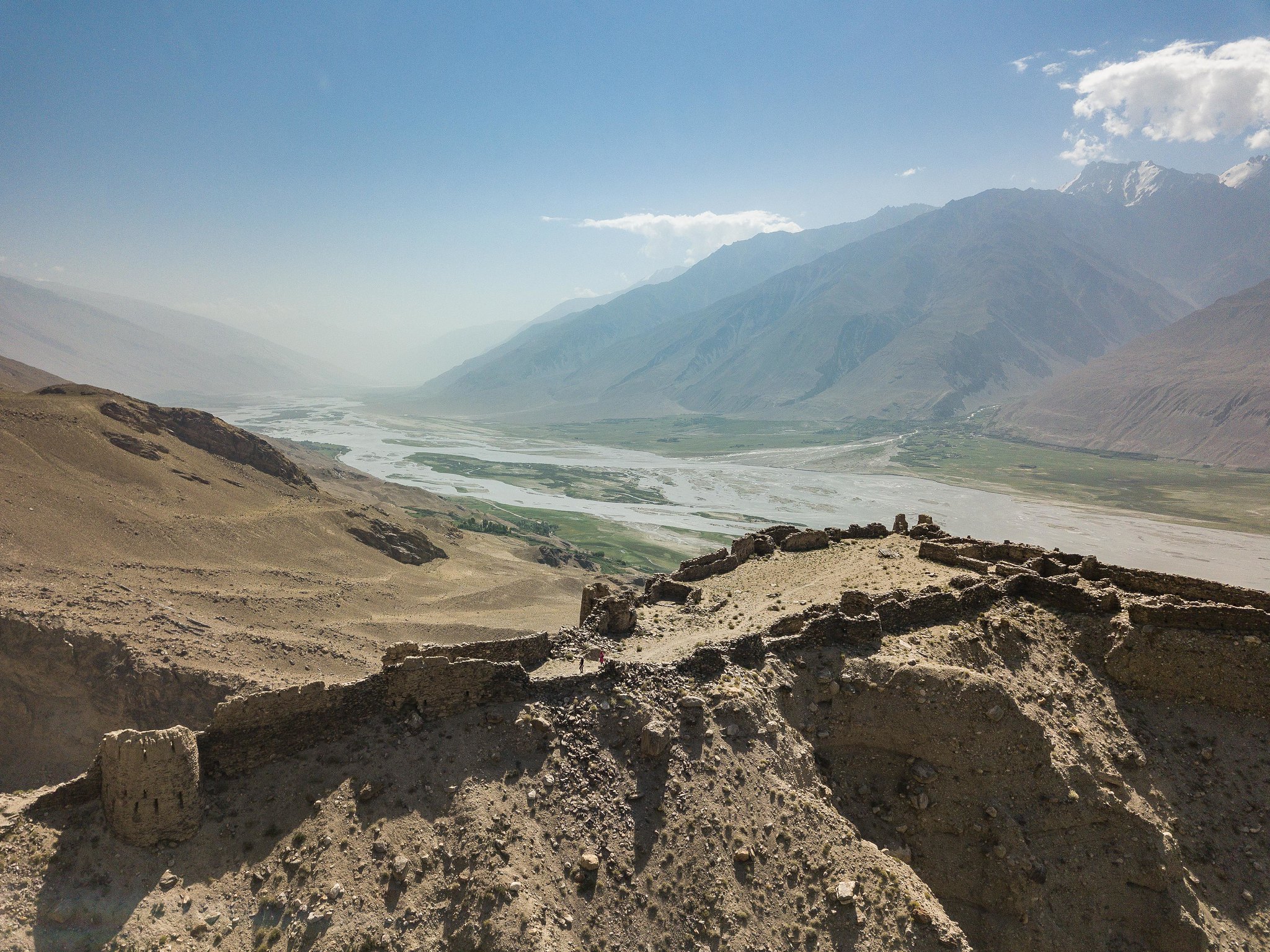
Last summer I set out with my bicycle to travel from Moscow to Beijing on the alternative Trans Siberian Express, unfolding my bicycle to explore along the way. My journey was meant to be only three months, but at some point I decided to stop along my route for the winter, intending to continue to Beijing the next spring.
I volunteered as an English teacher in Khorog staying in Tajikistan on a six week tourist visa and leaving the country to explore neighbouring countries at each six week interval in order to re-enter Tajikistan on a new tourist visa. (Make sure to put Afghan Badakhshan— a literal stone’s throw away—on your travel list!).
In my capacity as a volunteer teacher for the Life Skills Program of the Ismaili Jammat Council, I traveled to all of the Districts of GBAO to provide trainings to English teachers in their villages. I’ve come to love the Pamirs and its people.
As fall turned to winter and winter turned to spring, the cherry tree outside the window of my host family’s home beckoned. As I savoured the last jars of cherry jam in the family’s pantry, I didn’t think I would still be here when the cherries ripened, but then COVID-19 become a global pandemic and here I am eating fresh cherries— and apricots, mulberries, and apples— directly from the trees of the garden.
“As I savoured the last jars of cherry jam in the family’s pantry, I didn’t think I would still be here when the cherries ripened, but then COVID-19 become a global pandemic and here I am eating fresh cherries”
From the moment I first stepped into the PECTA office last fall, the staff have been extremely supportive, going out of their way to help me— at times literally, physically accompanying me to government buildings for this registration or that registration and other times picking up my worried phone call at an odd hour. My assistance from the office of the GBAO governor Mr. Yodgor and Mr. Jobiri and his team at the Ministry of Foreign Affairs would not have been possible without the support of the PECTA team.
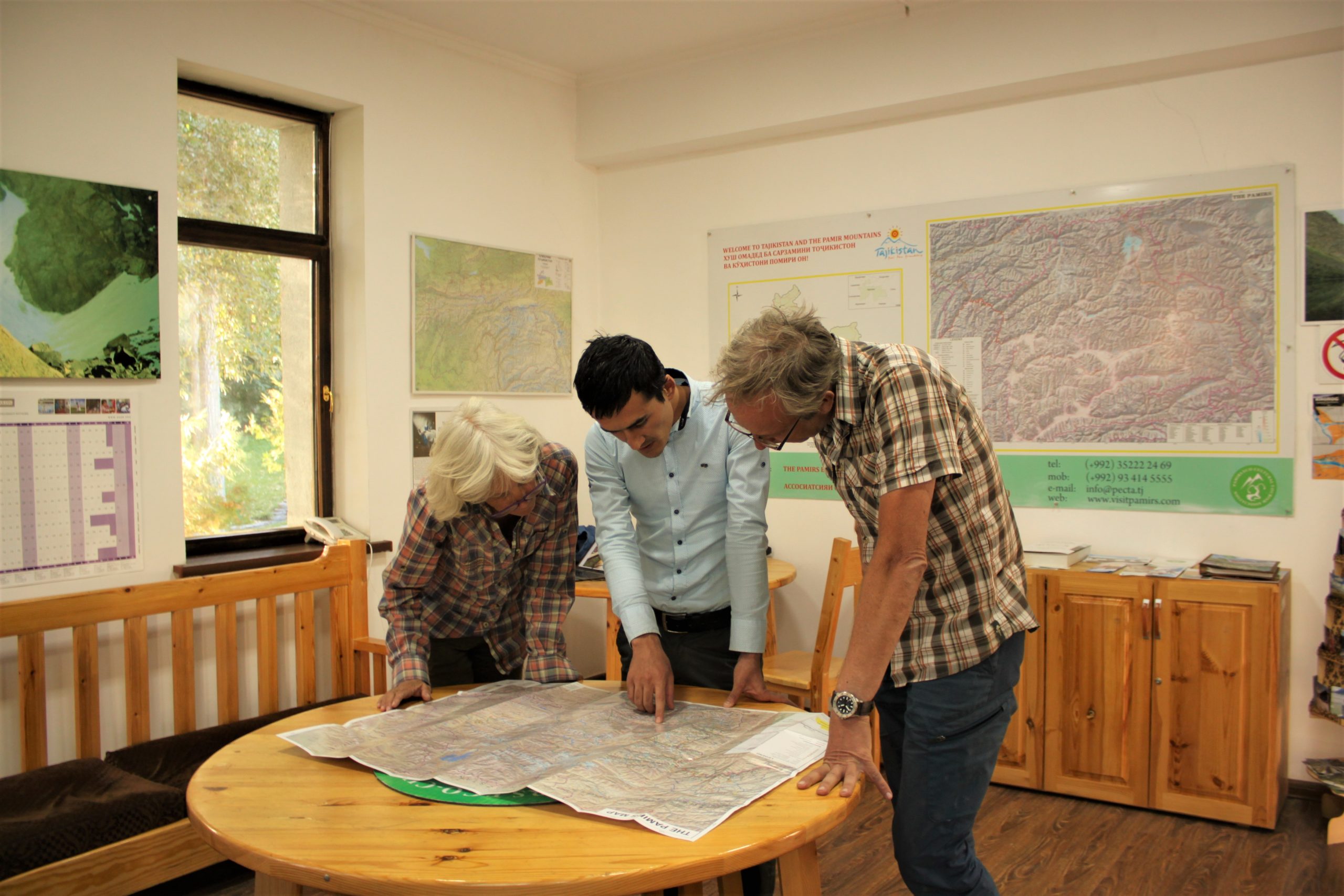
At the height of the quarantine, after the airport and all borders had been closed, the office of the GBAO governor Mr. Yodgor granted me permission to stay in Khorog with my expired tourist visa instead of traveling to the capital to try and resolve the situation at the Ministry of Foreign Affairs. Travel from Khorog – the capital of the GBAO – and Dushanbe is treacherous on a good day, with road closures and landslides always an ever real possibility on the 15-20 hour car ride with seven other passengers (and no seat belts) on mostly unsaved roads. During a global pandemic, where all but essential travel is unadvisable, the journey becomes even more perilous. Being in my host family’s home, surrounded by our garden, during the nearly two month lockdown in the fresh air of the mountains was a gift.
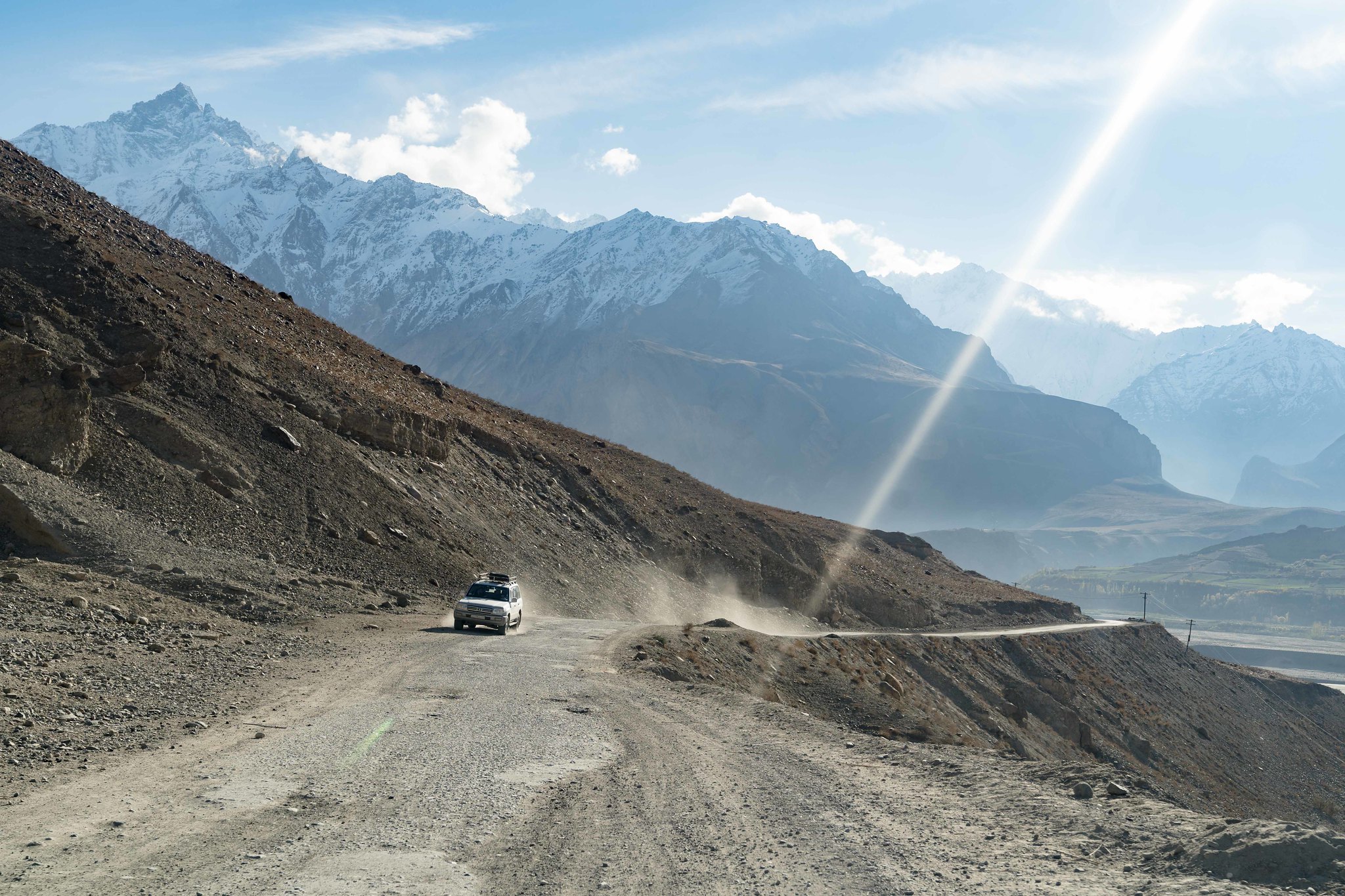
Mr. Jobiri and his team at the Ministry of Foreign Affairs did eventually announce a reprieve on all expired visas during the lockdown. When the time came for me to travel to Dushanbe this month to get my visa into order, the entire process – typically two weeks – only took one day thanks to the assistance of Mr. Jobiri. The expedited process allowed me to swiftly return back to my home in the Pamirs.
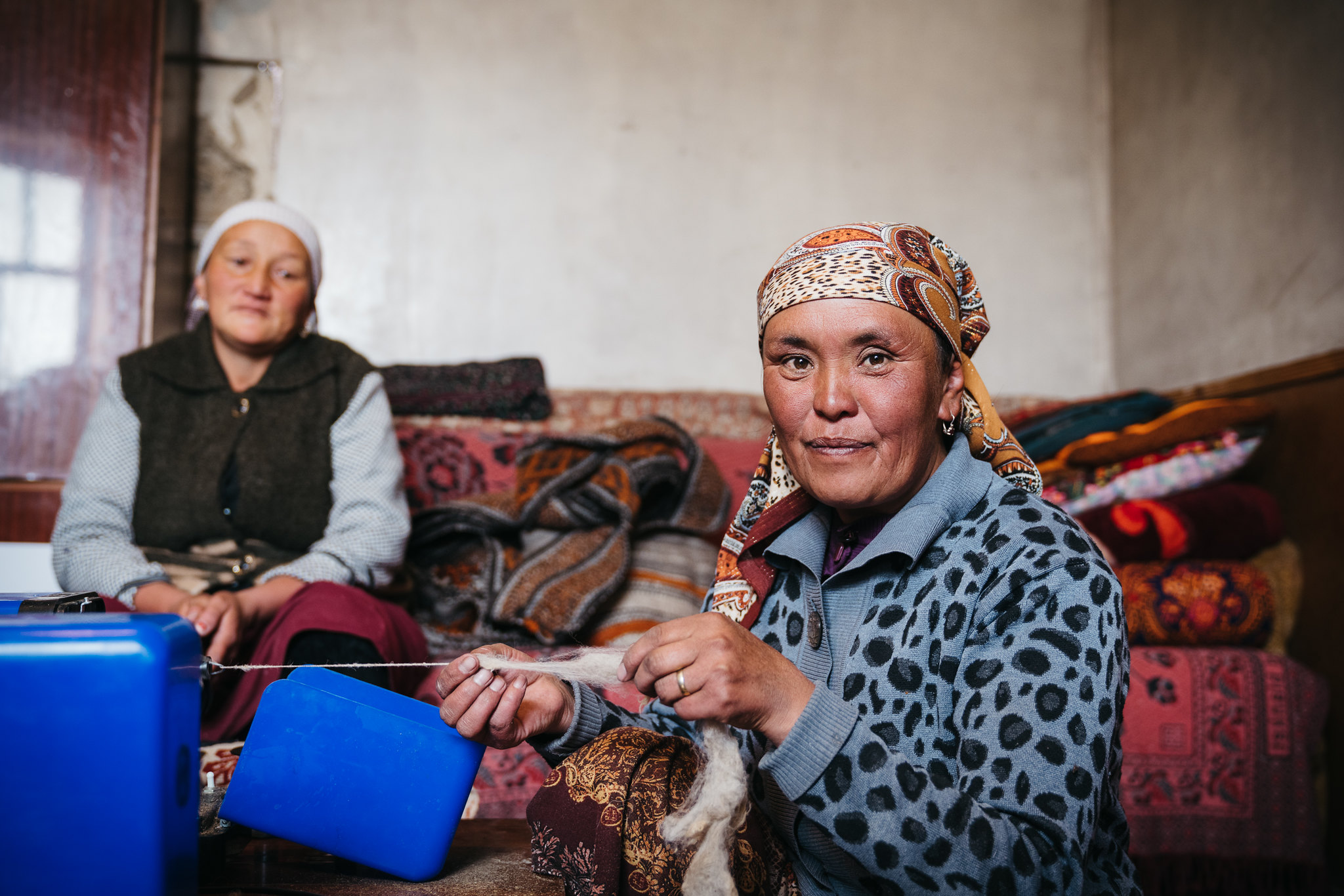
The airport is slowly re-opening and it will be time for me to leave the Pamirs soon. These mountains have become home to see so it wont be goodbye, but see you soon because I know I’ll be back before I know it. Have you been to the Pamirs before? Maybe you’re dreaming of your first trip or maybe just longing to return. Your first stop should be the PECTA office. As the Pamirs have grown in popularity, there are many blogs sharing personal travel accounts. These blogs can be great starting points, but the PECTA office can provide up-to-date information and in the ever changing landscape of these mountains the most up-to-date information is the most important.
“Travel blogs can be great starting points, but the PECTA office can provide up-to-date information and in the ever changing landscape of these mountains the most up-to-date information is the most important.”
Perhaps what I appreciate most about the staff at the PECTA office is that they’ve encouraged me. The PECTA office is staffed by people who love their home and want to share the Pamirs with you. The Pamir Eco-Cultural Tourism Association encourages you to explore both the nature and culture of the Pamirs because they are inseparable here in these mountains. So before you rush through Khorog – as I did on my first 4×4 Jeep tour of the Pamir Highway – spend a day or two in Khorog and linger in the Khorog City park where the PECTA office is located. Sit on a park bench snacking on fresh apricots and admire the beauty of the Jammat Khana Ismaili Center as you people watch. Or better yet, take public transportation from Dushanbe (or Osh!) to Khorog and figure out your plan once you’re here. Because these mountains are inspiring and the PECTA office is here to help.
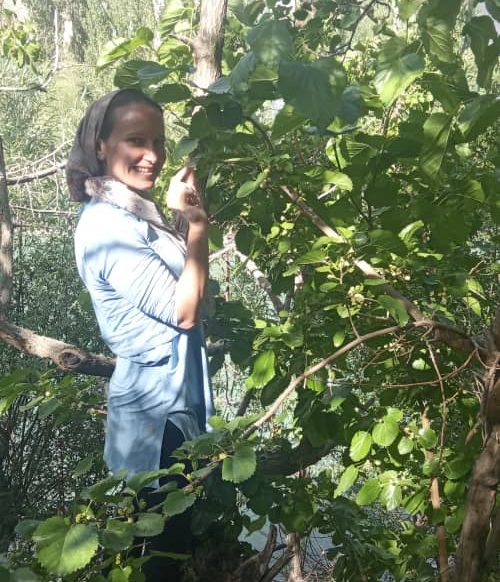
Pamiri people and landscapes – in pictures
The Pamir Eco-Cultural Tourism Association (PECTA) was established in 2008 with the support of the Aga Khan Foundation. Its overall objective is to help alleviate poverty in the Pamir region in Tajikistan through tourism focused activities. It does so by promoting the region as a tourism destination and by supporting local people in the remote mountain villages of Gorno-Badakhshan Autonomous Oblast (GBAO) to develop skill sets that build the tourism sector. Currently, PECTA has 22 members: 14 tour operators and 8 service providers. Additionally, PECTA is working with other tour operators, service providers, home-stays owners, drivers, guides, porters and other relevant sectors in GBAO. PECTA closely supports the home stays in the region with organising trainings and capacity building events. Currently PECTA cooperates with more than 173 home stays all around GBAO and 90% of the owners are women which is a great support for women as business people.
In addition to destination marketing and product development, PECTA works on preserving the historical heritage of the Pamirs, including protection of natural resources: support of the Tajik National Park – a UNESCO nature heritage site – is among its protection of natural resources initiatives.
Since 2018, in cooperation with Aga Khan Foundation Afghanistan and University of Central Asia (UCA), PECTA began promoting tourism in the northern parts of Badakhshan province in Afghanistan and to develop cross-border tourism. Since the start of this collaboration, PECTA began printing a brochure about cross-border tourism opportunities and produced promotional videos.

Support our work Your donations are helping us build a future where we all thrive together.
